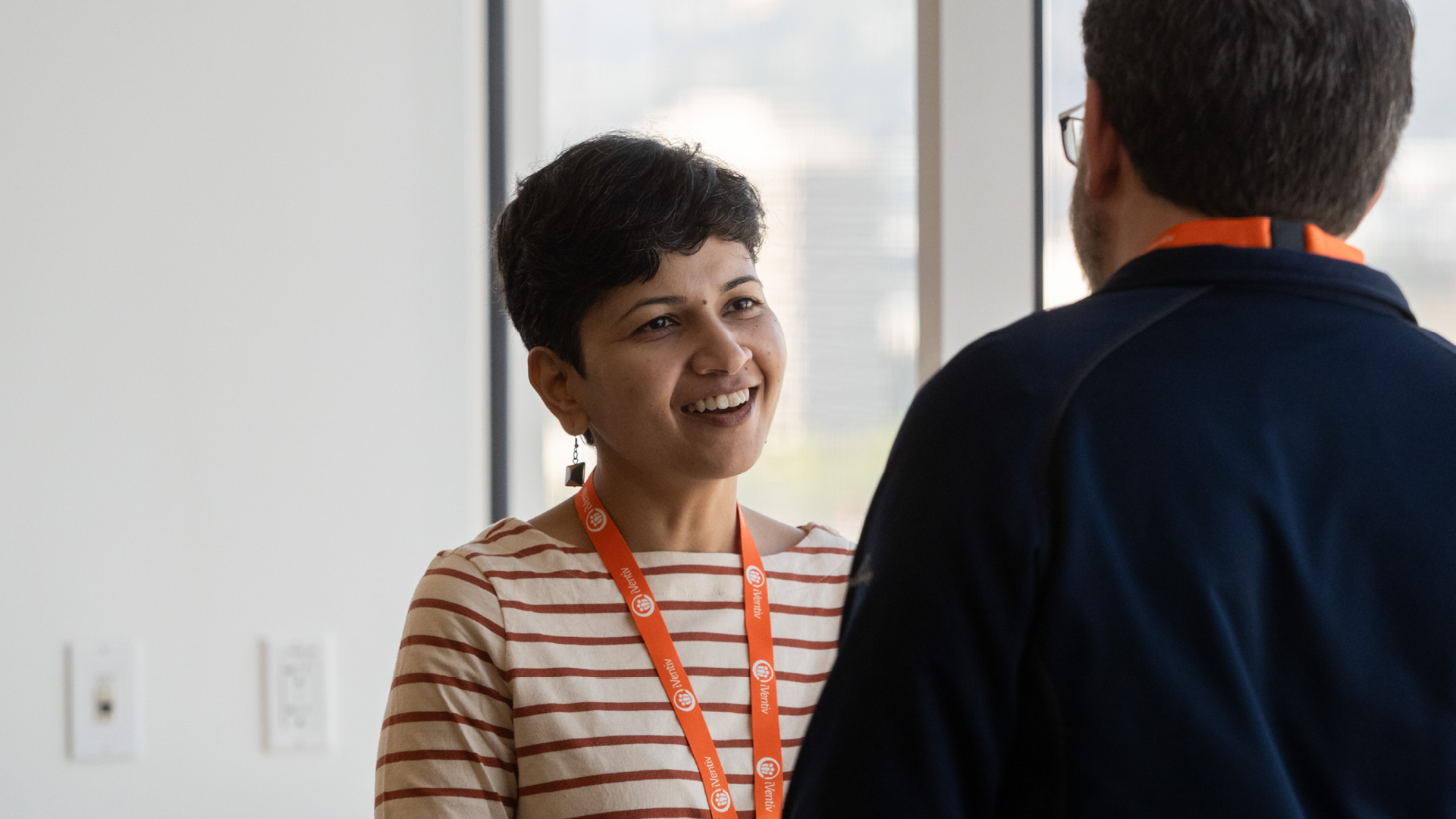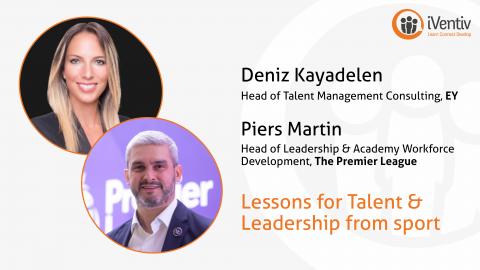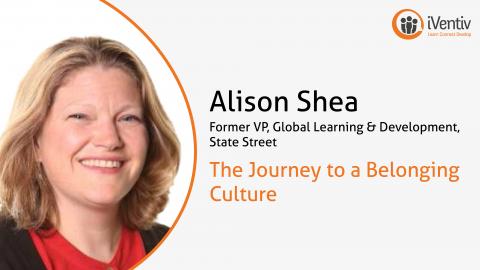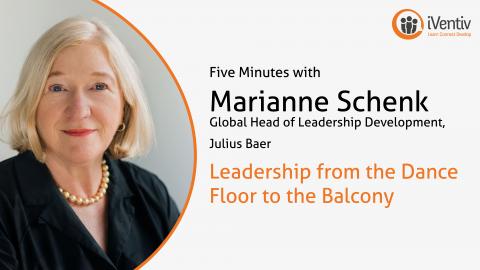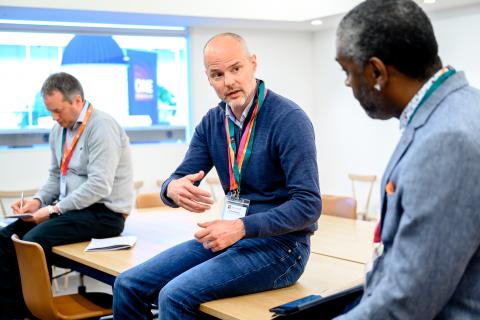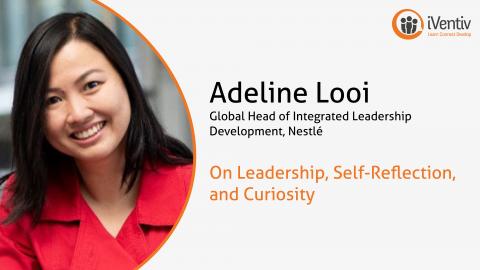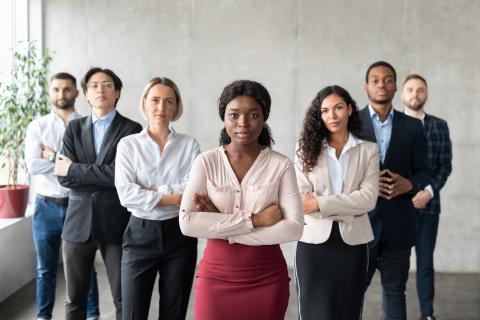Submitted by Kerry Summers on
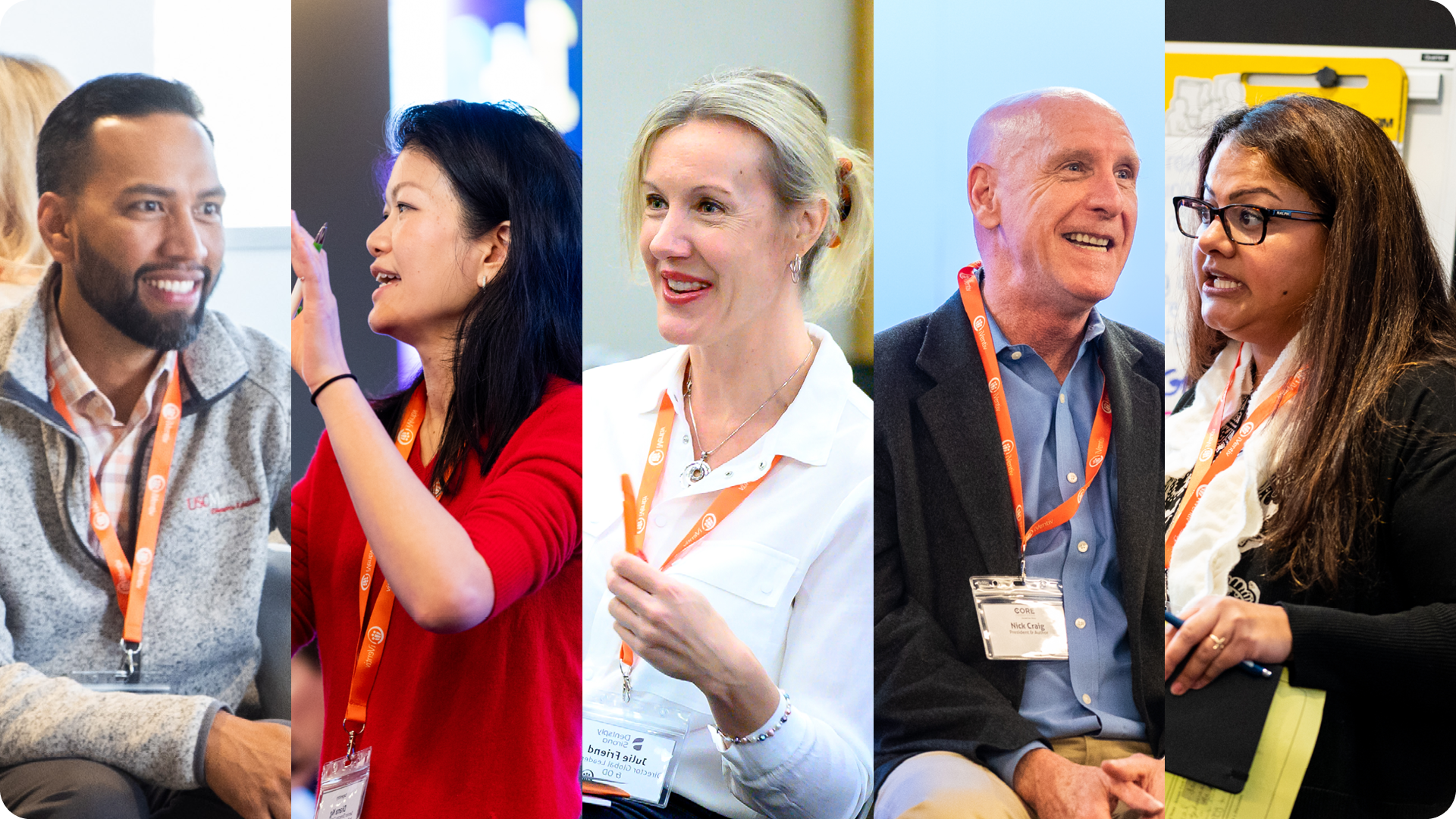
Replacing Silos with Social Learning
If your L&D event still revolves around PowerPoints and monologues from senior leaders, it might be time to challenge that format.
A model inspired by 70:20:10 offers a more compelling alternative. 70:20:10 encourages L&D pros to expect that:
- 70% of learning comes from on-the-job experiences,
- 20% from social learning (interactions with peers and colleagues),
- and just 10% from formal education and training.
The numbers are indicative, not exact calculations, but they provide an important framework to think about how L&D teams learn themselves. So, why are most L&D team events still focused on that smallest 10%?
Instead, imagine events where your L&D professionals learn from each other, sharing projects, lessons, roadblocks, and insights. When L&D leaders engage in meaningful dialogue, they don’t just trade ideas, they build trust, surface common challenges, and form connections that enable future collaboration.
Social learning turns knowledge into action and hierarchy into community. The best team events make learning tangible, practical, and deeply human.
How to Create a Knowledge-Sharing Event That Works
To move from information delivery to knowledge exchange, the structure of your event matters. Here are four strategies to help foster meaningful learning among your team:
1. Make sessions collaborative
Forget lectures. iVentiv’s conversational event format is something that we know works. Take a leaf from our book, and use breakout groups, facilitated discussions, and real-time problem-solving to ensure everyone is involved and engaged.
2. Encourage expertise-sharing
Everyone in your team has something to offer. Whether it’s a successful framework, a cautionary tale, or a regional innovation, make space for people to share what they know and what they’ve tried.
3. Invite case studies from participants
Ask attendees to come prepared with a case study, a project, initiative, or learning programme. These real-world examples provide a rich foundation for discussion, critical thinking, and constructive feedback.
4. Survey your audience in advance
A short pre-event survey can surface the most pressing issues across your team. For example, we use the information gathered from our pre-event questionnaires to tailor iVentiv agendas, and ensure the content reflects the real-world challenges L&D leaders are navigating in real time.
Practical Tools and Facilitation Techniques
Running a great event isn’t just about format. It’s also about facilitation. How can you elevate your next L&D team event? Here are a few tips:
Bring in external voices – strategically
A guest expert can offer valuable perspective, but make sure their input is relevant to your team’s needs. Better yet, ask them to facilitate dialogue rather than deliver a monologue. Use flipcharts and breakout spaces to create real, tangible impact and collaboration.
Use smaller groups for deeper conversations
In large teams, intimacy breeds honesty. Small groups encourage quieter voices to contribute and help participants explore complex topics in depth.
Prioritise listening over talking
Facilitators should focus on drawing ideas out of participants. Listening actively and asking the right questions will generate far more insight than any prepared slide.
Frame the conversation around the future
Ask open-ended, forward-looking questions: “What could we do differently?” “What’s emerging in your region?” “What skills will we need in 18 months?” This encourages exploration and invites innovation.
Capture and share the outputs
After the event, summarise key takeaways, shared resources, and next steps. This not only reinforces learning, it provides a practical reference for those unable to attend and a foundation for follow-up.
Measuring What Matters: From Experience to Impact
A common pitfall for corporate team events is evaluating those events based only on how enjoyable they were. While satisfaction is important, it’s not enough.
To truly measure the impact of your L&D event, ask:
Are participants applying what they’ve learned?
Follow up after the event. What ideas have been piloted? What new practices were shared across teams? This tells you whether knowledge is translating into action.
Did the event create new connections?
Successful events lead to collaboration. Track whether participants have formed new partnerships or if colleagues have continued conversations beyond the event.
Are attendees bringing insights back?
Invite participants to return to future events and share what they implemented. This creates a culture of learning and accountability, and shows that the event was more than a moment in time.
What Does an Effective L&D Team Event Really Achieve?
When done well, an L&D team event does more than exchange information. It strengthens cohesion. It surfaces new ideas, encourages alignment across regions and roles, and it signals that learning applies not just to the business, but to the learning team itself.
What we’ve found after running corporate events for more than 17 years, is that in global organisations, the most effective L&D leaders don’t just teach collaboration, they model it. They foster a culture where people share generously, reflect honestly, and co-create the future of learning.
Ready to Design Your Next Team Event?
iVentiv’s bespoke Executive knowledge exchanges are built around collaboration, real-world case studies, and peer-to-peer dialogue, delivered in formats designed to foster impact across global teams.
What did Daniela Todorova, Area Learning Lead, Microsoft Germany say about the impact of iVentiv’s bespoke event?
“It was so great to see how everybody jumped into talking to each other, asking questions, sharing super openly, just embrace[ing] the opportunity to learn from each other.”
If you're ready to explore what a purpose-built L&D team event could look like for your organisation, we’d love to help. To find out how iVentiv bespoke events could work for you, make an enquiry now.
Related Resources
- Designing Events for Knowledge Sharing: Practical Techniques
- Solving the Knowledge Silo in Global Learning Teams
- 10 Questions to Ask Before Planning an Internal Event
- Why Customer Education Matters
- Planning Corporate Events For Small Groups: A Complete Guide
- Why Internal Events Often Fail, and How to Fix Them
- How to Engage L&D Teams Through Events
- The Difference Between Team Building and Team Learning
iVentiv and Microsoft - A Bespoke Event Experience
